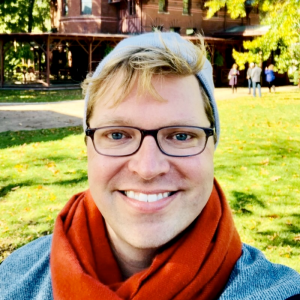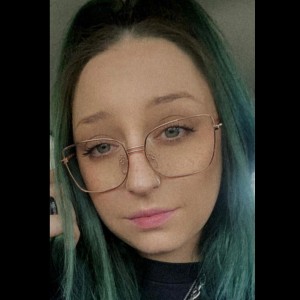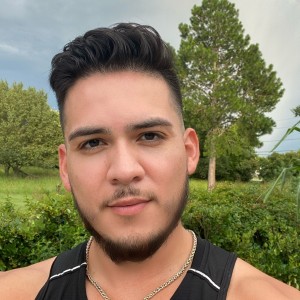North Texas gay bars have provided community for many. Here are their stories
ArtandSeek.net July 14, 2021 21
Are gay and lesbian bars dying out?
A 2020 report out of Oberlin College found 37 percent of gay bars in the U.S. have closed between 2007 and 2019. Then the pandemic hit, forcing many local establishments like Sue Ellen’s — Texas’ oldest lesbian bar — to go dormant for a year. It reopened June 4.
So, KERA and the Dallas Morning News have teamed up to explore the state of gay and lesbian bars in North Texas.
More than 75 people responded to our survey about what North Texas gay bars have meant to them. Many shared fond memories of their first time going to a gay bar and the community they’ve found there.
Many respondents said the pandemic was devastating for the LGBTQ community — increasing isolation, decreasing connection and hurting businesses. Others said they found ways to maintain relationships, though with smaller groups of friends.
We’re also planning a more in-depth story for August on this topic, so it’s not too late to share your thoughts. You can do so in two ways:
- Take our survey.
- Leave a voicemail message at 430-558-1603
Happy #PrideMonth! @dallasnews and @keranews are exploring the legacy & future of gay & lesbian bars in North Texas. What do these spaces mean to you? Do you remember your first night out at a gay bar? Tell us below or DM @quillindie or @littlelatinboy. pic.twitter.com/sZgQZOy7YN
— Dallas Morning News (@dallasnews) June 25, 2021
We reached out to three North Texans who responded to the survey to learn more about how gay bars can provide community after trauma; one person’s desire to open a lesbian bar; and another on the importance of spaces for queer POC.
‘A community I could love’
Brian Fehler, 45, shared the story of going to Oak Lawn to meet a friend and visit his first gay bar.

Brian Fehler of Fort Worth said his first visit to a gay bar in Oak Lawn felt like finding a community. “That is something that I didn’t even realize I had been missing, something I didn’t realize I’d been longing for.”
It was the early 1990s and Fehler, of Fort Worth, was in a secret relationship with a high school athlete. Both of them were talking about coming out. A few weeks after Fehler came out, his boyfriend took his own life.
“I did a lot of turning inward,” Fehler said. “Depression had set in and suddenly I found myself just spiraling, even though it was still a young kid.”
More than a year later, Fehler says he decided to step out into the world again. He started spending time in Oak Lawn, the heart of LGBTQ nightlife in Dallas.
“I saw people going into these bars who looked happy, but even more important, looked like they had a community,” he said. “That is something that I didn’t even realize I had been missing, something I didn’t realize I’d been longing for.”
Fehler decided it was time to venture into one of the bars. He met a friend outside The Round-Up Saloon.
“That’s when I really began to feel emotional because I was feeling really scared about going into the gay bar, even though I wanted to so bad,” he said. “But when I saw him, he took my hand at that point … Simply that touch there on the street in front of those bars just opened up a reserve in me, and I just cried.”
Here’s what that experience meant to him.
“For the first time in my life, holding this man’s hand, I was looking at a room of gay and queer people. They talked to me as they talked to him. They welcomed me right into their circle. What it felt like was a reawakening of my old self. My old, exuberant self.
“Most people are born in families that teach them about family traditions, that teach them about the culture and the morays of the family.
“Almost without exception, gay and queer people are not born into gay and queer families. We have to learn what it means to be ourselves from someone outside of our family. Our families, even if they’re really accepting, aren’t able to teach us that.
“That first night at the gay bar felt like, ‘Here is a community that I could love, who would love me back, and teach me what it means to be gay.’”
‘Safe place for women’
Megan McLain, 27, went to the reopening of Sue Ellen’s on June 4. As the only lesbian bar in Dallas, McLain said it’s “a place where you can be safe. You don’t have to look behind your back.”

Megan McLain, 27, went to the reopening of Sue Ellen’s on June 4. As a bartender, the McKinney resident hopes to open more bars for women like Sue Ellen’s.
The Mesquite resident said gay clubs are like a “home away from home” and she’d like to see more places for women like Sue Ellen’s.
“In every city, every major city at least, there are bars for gay men. I’m not quite sure why the representation for lesbians is so much smaller,” she said. “I work as a bartender, so I, in the future, would like to open a bar that would be a safe place for women to mingle and meet each other because I don’t think there’s enough of them.”
‘None of this is promised’
Mariano Pintor remembered being 18 and feeling like he didn’t belong in Oak Lawn.
“Not only because of the gay scene, but just being Latino,” Pintor said. “Some of the places were predominantly white. I just never felt accepted.”
Then one day, he went with a friend to Havana Lounge in Oak Lawn. Pintor was immediately struck by the music and people.
“They play Latin music, but like authentic Latin music, not just like Despacito. People that you would not expect were making out and dancing. I was like, this is so cool!,” Pintor said. “I immediately was like, ‘Okay, this is where I feel comfortable. I feel at home.’”
Here’s what Pintor, now 31 and living in Dallas, hopes for others in the LGBTQ community.

Mariano Pintor said his first reaction to Havana Lounge was: “Okay, this is where I feel comfortable. I feel at home.”
“I think so many of us grow up in our families and our communities being ostracized or being neglected. You can show up to a place like Havana, and you can just get a drink. Maybe you meet somebody, maybe you don’t, but like you have a place to kind of go. I think everyone needs that.
“I think about our trans brothers and sisters who just don’t have anywhere to go at all because within our own community, we can be discriminatory.
“As a community, we just kind of need to listen to each other more. Some people are still trying to get out and some people are still trying to push through. It has to be really thought out and not just taken for granted because none of this is promised.”
Juan Figueroa is a staff photographer at The Dallas Morning News.
A version of this story aired on KERA FM and published on dallasnews.com. It also appeared in The Dallas Morning News on Wednesday, July 14.










